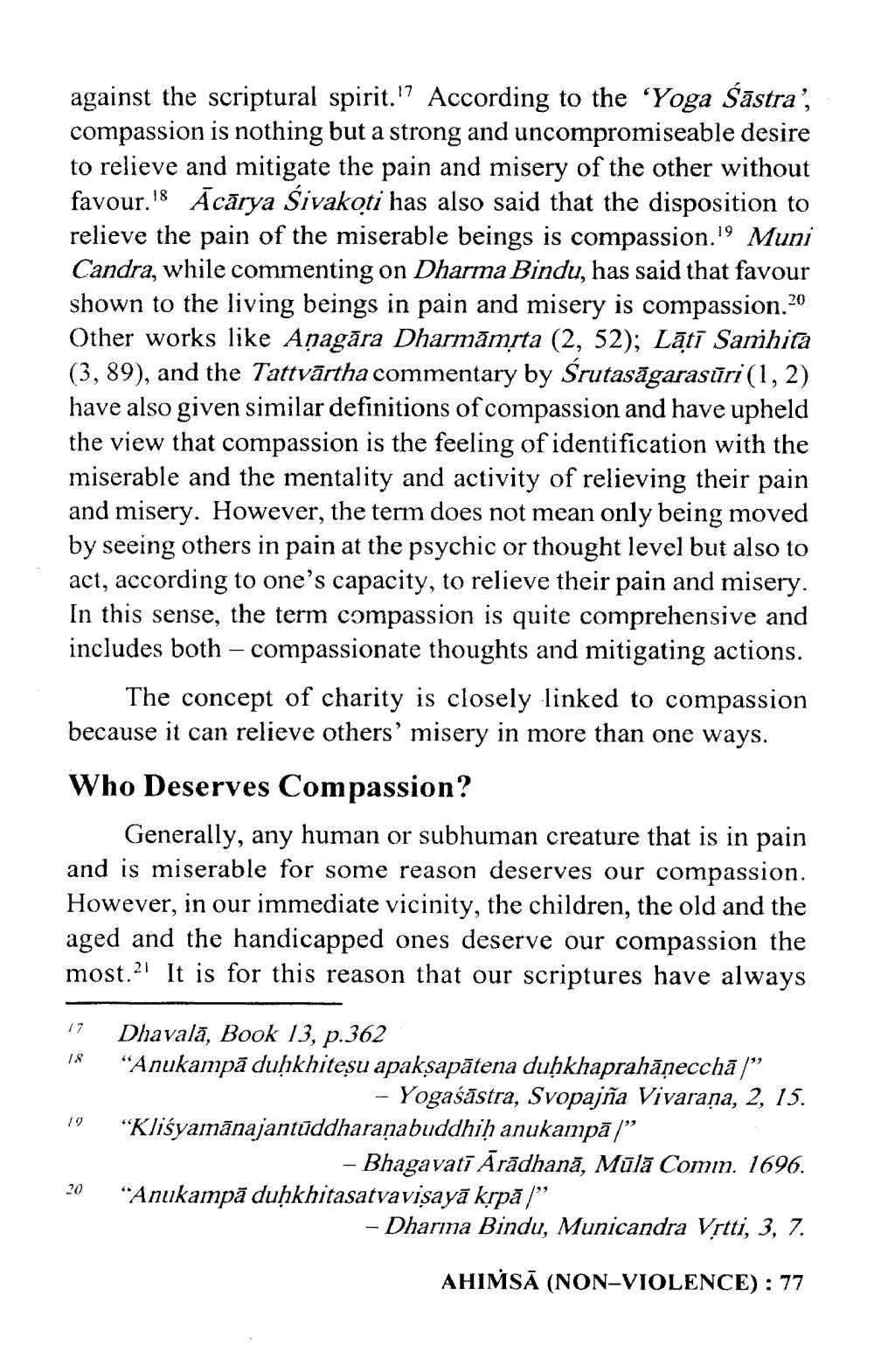________________
against the scriptural spirit.!? According to the 'Yoga Šāstra', compassion is nothing but a strong and uncompromiseable desire to relieve and mitigate the pain and misery of the other without favour.'8 Ācārya Śivakoti has also said that the disposition to relieve the pain of the miserable beings is compassion.'' Muni Candra, while commenting on Dharma Bindu, has said that favour shown to the living beings in pain and misery is compassion.20 Other works like Anagāra Dharmāmsta (2, 52); Lātī Samhita (3,89), and the Tattvārtha commentary by Srutasāgarasūri(1, 2) have also given similar definitions of compassion and have upheld the view that compassion is the feeling of identification with the miserable and the mentality and activity of relieving their pain and misery. However, the term does not mean only being moved by seeing others in pain at the psychic or thought level but also to act, according to one's capacity, to relieve their pain and misery. In this sense, the term compassion is quite comprehensive and includes both - compassionate thoughts and mitigating actions.
The concept of charity is closely linked to compassion because it can relieve others' misery in more than one ways. Who Deserves Compassion?
Generally, any human or subhuman creature that is in pain and is miserable for some reason deserves our compassion. However, in our immediate vicinity, the children, the old and the aged and the handicapped ones deserve our compassion the most.21 It is for this reason that our scriptures have always
17 18
19
Dhavalā, Book 13, p.362 “Anukampā duḥkhitesu apaksapātena duḥkhaprahāņecchā /"
- Yogaśāstra, Svopajña Vivarana, 2, 15. “Kliśyamānajantūddharaṇabuddhiḥanukampā /"
- Bhagavati Ārādhanā, Mūlā Comm. 1696. “Anukampā duḥkhitasatvavisayā krpā /"
- Dharma Bindu, Municandra Vrtti, 3, 7.
20
AHIMSĀ (NON-VIOLENCE) : 77




